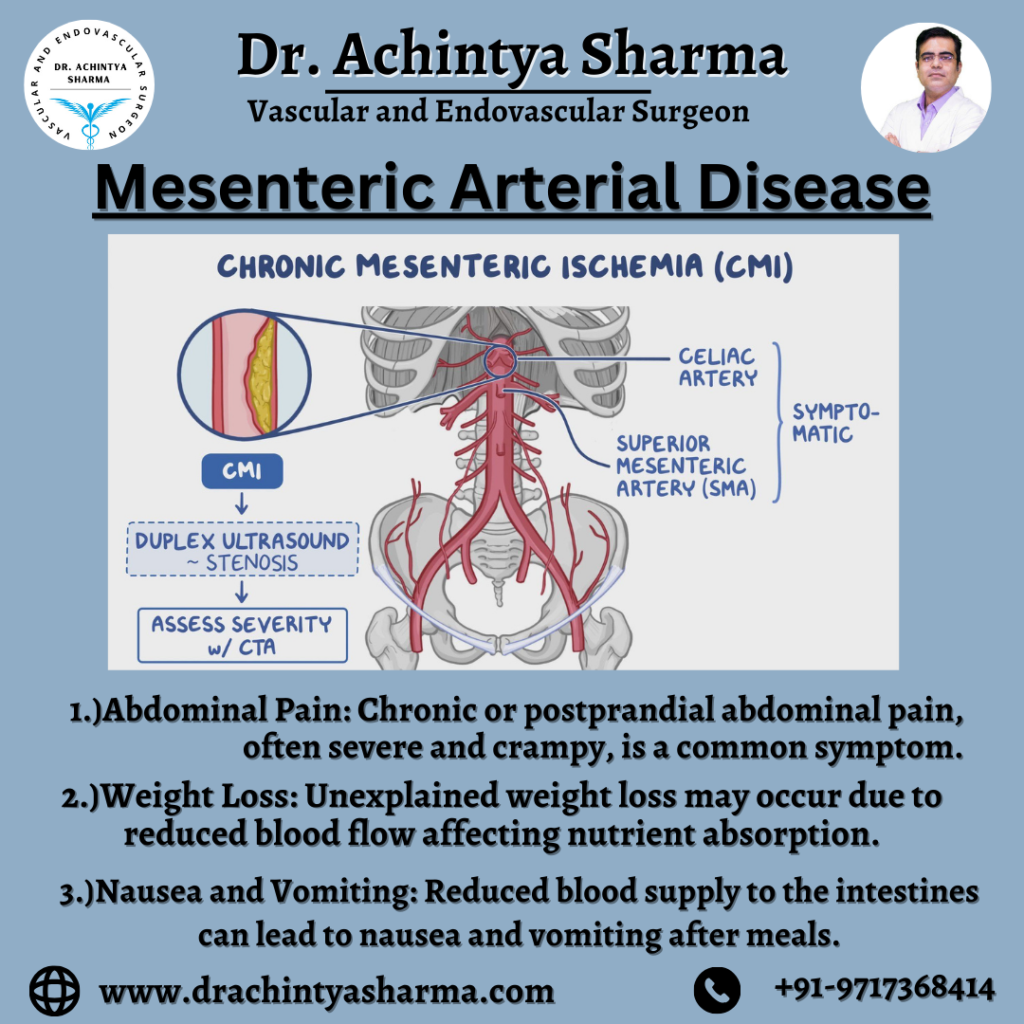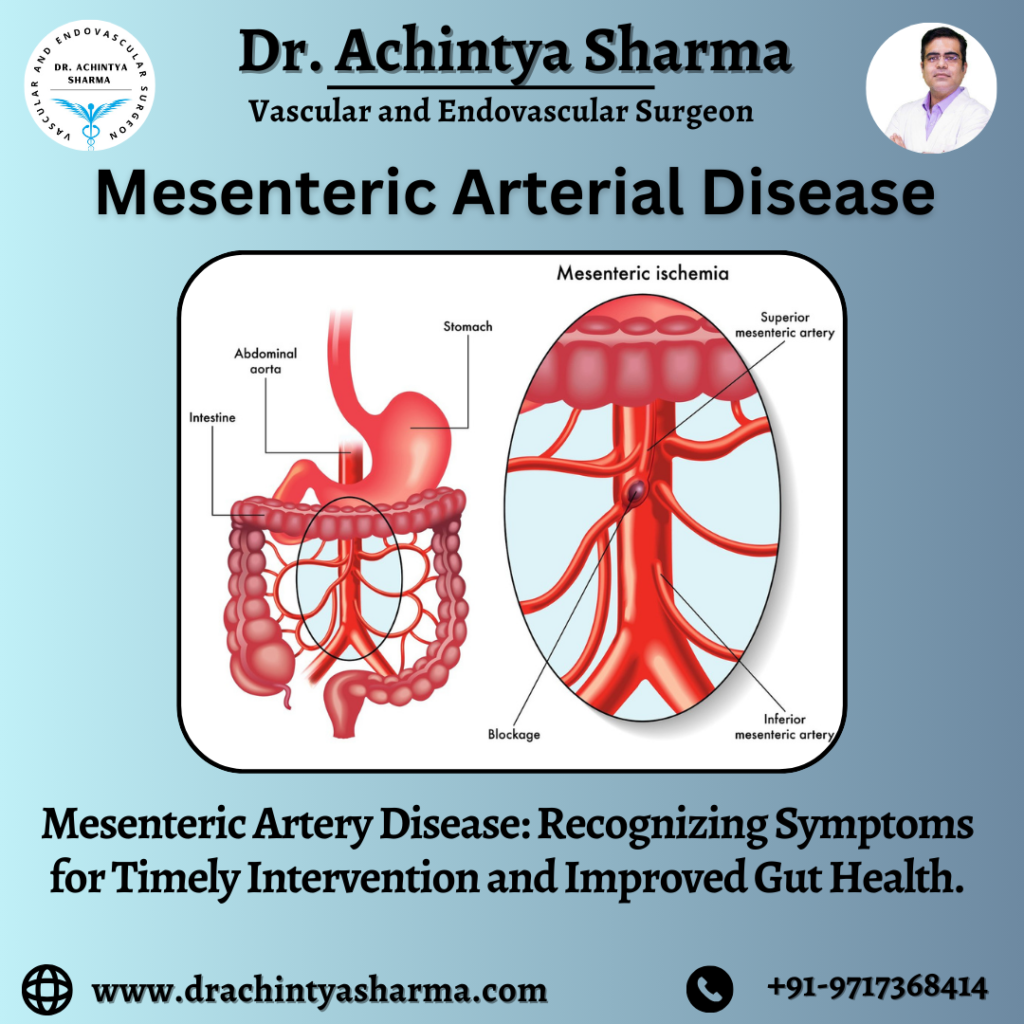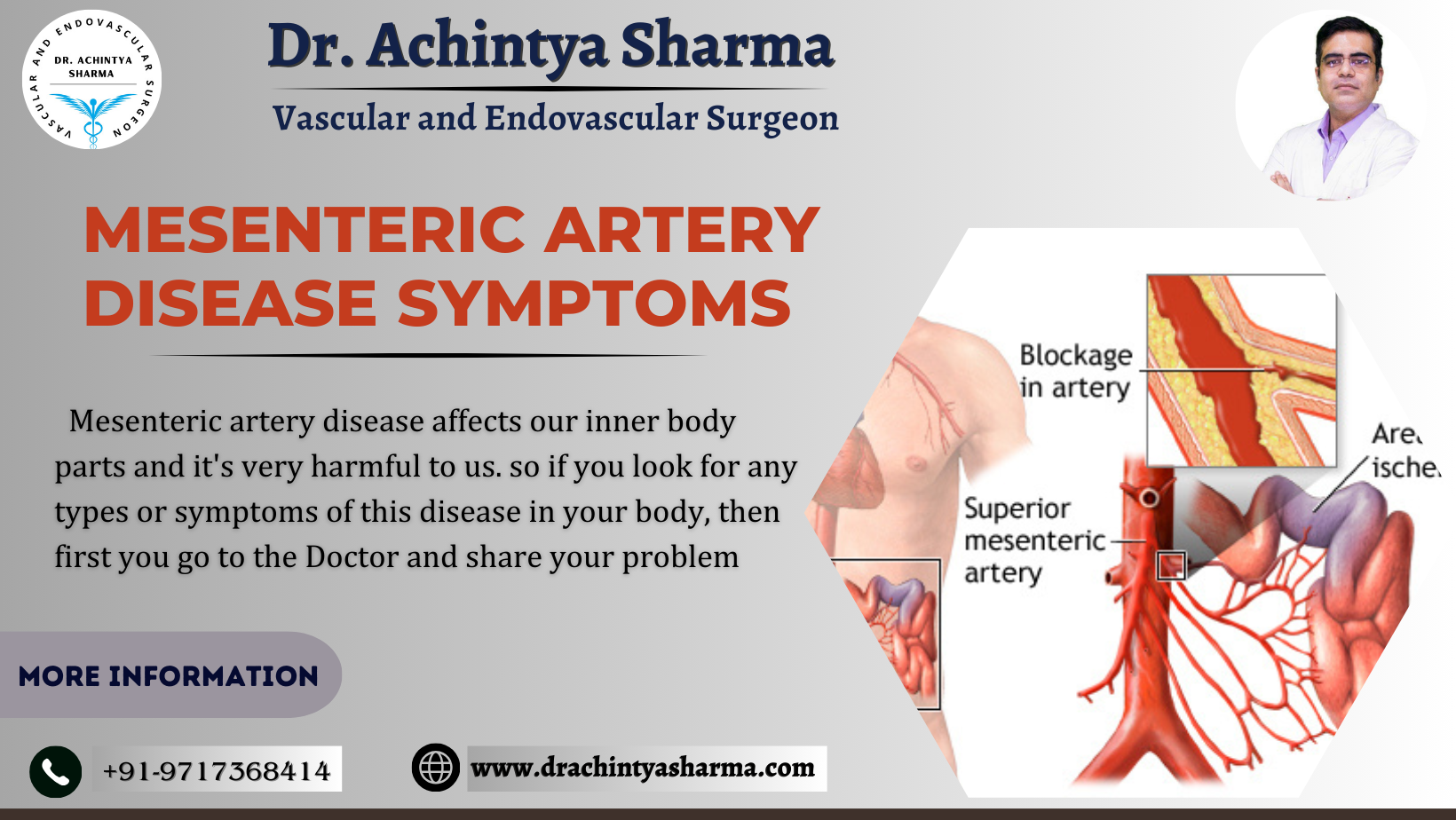Mesenteric artery disease symptoms refer to a condition in which the blood vessels supplying the intestines, specifically the mesenteric arteries, become narrowed or blocked. This restriction in blood flow can lead to various symptoms and, if left untreated, can result in serious complications. Understanding the symptoms of mesenteric artery disease is crucial for early diagnosis and intervention. One of the primary mesenteric artery diseases is abdominal pain, often described as crampy or colicky. This pain typically occurs after meals when the digestive system requires increased blood flow to process and absorb nutrients.
The Risk Factors of Mesenteric Artery Disease Symptoms

Risk factors contribute to the development of mesenteric artery disease symptoms, and a combination of these factors may increase the likelihood of the condition. One of the primary risk factors is atherosclerosis, a condition characterized by plaque buildup in the arteries. Atherosclerosis can narrow and harden the mesenteric arteries, reducing blood flow to the intestines. Other risk factors include:
A. Age: Mesenteric artery disease is more common in older individuals, especially those over the age of 60.
B. High Blood Pressure: Hypertension can damage the arteries over time, making them more susceptible to narrowing and reduced blood flow.
C. Family History: A family history of cardiovascular diseases may predispose individuals to mesenteric artery disease.
D. Diabetes: Individuals with diabetes are at a higher risk due to the impact of the disease on blood vessels.
E. High Cholesterol: Elevated levels of cholesterol in the blood can contribute to the formation of plaque in the arteries.
F. Previous Cardiovascular Events: Individuals who have a history of heart attacks or strokes may be at a higher risk.
How we protect ourselves from Mesenteric Artery Disease
Protecting oneself from mesenteric ischemia involves adopting a proactive approach to cardiovascular health and making lifestyle choices that reduce the risk of developing this condition. Mesenteric artery disease is often associated with atherosclerosis, characterized by plaque buildup in the arteries. Here are to protect oneself from mesenteric artery disease.
1. Stress Management: Chronic stress has been linked to cardiovascular diseases. Incorporating stress-reducing activities such as meditation, deep breathing exercises, or hobbies can contribute to overall well-being and cardiovascular health.
2..Regular Health Check-ups: Regular health check-ups and screenings can help detect risk factors and conditions early on. Routine blood pressure measurements, cholesterol level checks, and assessments of other cardiovascular risk factors enable timely intervention and lifestyle adjustments to prevent the progression of arterial disease.
3. Daily Exercise: Engaging in regular physical activity is crucial for cardiovascular health and can help prevent mesenteric artery disease. Exercise promotes blood circulation, helps control weight, and contributes to overall well-being.

4. Quit Smoking: Smoking is a major risk factor for cardiovascular diseases and mesenteric artery disease. Quitting smoking is one of the most impactful steps individuals can take to protect their vascular health. Smoking cessation not only reduces the risk of developing mesenteric artery disease but also improves overall cardiovascular function.
5. Limit Alcohol Intake: Excessive alcohol consumption can contribute to high blood pressure and other cardiovascular issues. It is advisable to limit alcohol intake to moderate levels, as defined by health guidelines.
6. Stay Hydrated: Proper hydration is essential for maintaining overall health, including cardiovascular health. Drinking an adequate amount of water helps ensure optimal blood viscosity and circulation, reducing the risk of clot formation and arterial blockages.
Conclusion
The mesenteric artery disease symptoms are crucial for detection and management. Abdominal pain, unintentional weight loss, diarrhea, and food fear are common manifestations of this condition. Timely intervention can help alleviate symptoms, improve quality of life, and prevent the progression to more severe complications such as mesenteric ischemia. Protecting yourself from mesenteric arterial disease involves an approach to cardiovascular health. By adopting a healthy lifestyle, managing risk factors, and staying vigilant through regular check-ups, individuals can significantly reduce the likelihood of developing mesenteric artery disease and its associated symptoms.




